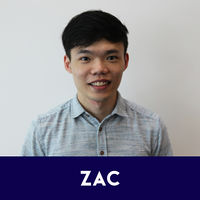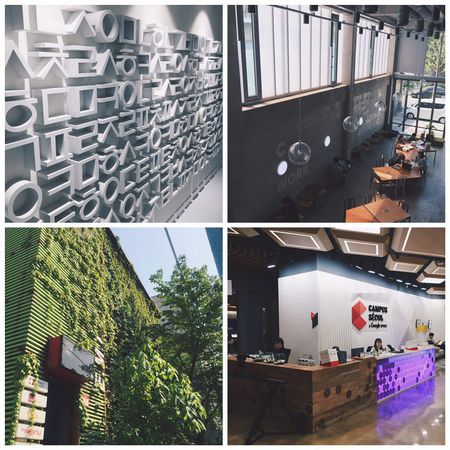1516T2g1 South Korea/Reflection
| Day 2 |
Contents
Day 1: Reflections
Kozaza
Kozaza facilitates an economy by the people through sharing underutilized resources – the home. SanKu Jo, the CEO of Kozaza believes strongly in the suitability of home sharing in Korea due to the unique Korean experience one will get. His strategy is to target the younger generation by making presence in popular dramas and through celebrities and influencers. This I believe is a good starting point in providing a way for millennials around the world to visit Korea and receive traffic for Kozaza’s inbound revenue. In Korea, countless of home sharing businesses have failed. Kozaza beaten the odds and remain the leading player because of SanKu Jo’s hope for a better experience in Korea and his strong will and competence in managing its operations.
SanKu Jo seems to be the person with big actions. He copies carefully what AirBnB is doing and is able to see the unique experience people want through Korea home sharing, and execute it without a doubt.
Weenu
Weenu focuses on everything art with a social cause. They strongly believe in using art to promote social issues through FESTA – a festival where artists meet with the public and share social issues. Weenu Provides education programmes as a revenue stream for artists, and promotes artists online through collaboration with NAVER Corp. Weenu’s strategy is to get big players (i.e. NAVER Corp) and sponsorships to promote the artists’ crafts in return for advertising.
What hit me was Miho Heo’s passion in social causes. In Korea, female workers do not get paternity leave but Weenu has it. Miho Heo’s decision to provide this welfare empowers her employees and hopefully make a statement to the SK government.
Seoul Google Campus
The Seoul Google Campus focuses on incubating and mentoring startups with great ideas, turning their ideas into fruition and anticipating the day they move out from the co-working space. This belief excites the event planners and mentors which I thought is core in forming their motivation to host the startups and the hundreds of events held there.
1. Kozaza
The Jack Ma quote "If we fight in the ocean, we lose—but if we fight in the river, we win.” made an impression on me because it is about finding the niche market to target, and it was a challenge to scope the target market for my IS480 project. Indeed, targeting a niche market is a way to survive, but from the sharing by CEO Mr. SanJu Ko, I'm not sure targeting a niche market is enough, as the value proposition as a niche-targeting may not be sufficient for consumers to use Kozaza rather than bigger market places like AirBnB. That brings me to the second takeaway - Kozaza differentiate by providing a service personnel to bridge the communication between travellers and homeowners who do not understand English (and these non-English speakers elderly would be the ones owning the authentic hanock homes). I think that the localized service personnel is the competitive advantage much stronger than his fee-free model, since trust, also emphasized by him, is the most important factor when it comes to travel lodging.
2. Weenu
Weenu's tagline "99% of art and 99% of people" made the biggest impression on me. I later found out from the Project Manager that it means making all other art accesible to all other people, making art more equitable. The founder's energy, charisma, and enthusiasm is probably the key to success of weenu. weenu probably have a difficult time hiring talents as mentioned by the Kozaza CEO when he explained the difference between Silicon Valley & South Korea, and the status as a social enterprise makes it harder to hire talents with the prospect of making more money. However, weenu may have hired the right people with the right mindset BECAUSE of the social enterprise label. It is heartening to hear that they have managed to achieve tripling of growth in sales over the past few years after not making a profit for ~5 years.
3. Google Campus @ Seoul
Google Campus @ Seoul was a little underwhelming, I have envisioned a large complex where the whole building is occupied by Google employees, but, I enjoyed learning about the cmapus, especially on the Device Testing Lab - where startup companies can make use of the many devices in the Lab to do their app testing, it will be wonderful if SMU SIS has the same thing. I wasn't able to ask this question - but what is it in for Google to spend so much money to maintain the entrepreneurship community in Seoul? I believe it is to be in the centre of innovation in this part of Asia so that they can leverage on the connections and perhaps buyout promising startups. It is encoruage to know that space is running out at the campus, it tells that Seoul entreprenuership circle is indeed growing.
Kozaza
Kozaza is 4 years old start-up that have successfully listed 5000 rooms. They offer a fee free structure that replicates the business model of Airbnb of property leasing but focuses solely in Korea only.
Founded by an engineer who has experience in Silicon Valley, the company emphasis on trust to sell and differentiate themselves. Through the usage of a shared economy, they focus on domestic market (for now) and aim to be a concentre player before they will vastly expand internationally in order to build trust. However, I felt that trust is something hard to earn by the public and their restriction to no expand overseas might not necessarily mean good (the later they expose to international market, the less trust they can get).
Amongst the many challenges, Kozaza faced 2 main challenges, Funding and Cultural difference between Silicon Valley and Korea. Although currently Kozaza is backed by $800k ($500k self-raised and $300k government matched), they are no different from any other start-ups. As with every start-up, funding will always be a key issue. Secondly, because the founder had experience in Silicon Valley prior this start-up, he tried to applied what he learns in terms of culture into this start-up only to realised it doesn’t work due to vast culture difference. I learnt that funding has always been an issue with start-up and that cultural difference are impactful factors.
With regards to their expansion plans, Kozaza Used to interview each host individually but soon realised it is not sustainable as they grew and are planning to roll out video interview function soon to resolve this issue. Additionally, they aim to target a total of 30% of their customers from foreign markets and 70% from domestic markets. I learnt that adding new functions to resolve new problems may take some time, hence we should be forward looking from the start.
Weenu
Weenu stands for We Enable You and they strongly believe that they enable artist to reach the public. Through the use of various platforms(FESTA, Education and Online), they believe themselves to be a social orgainsation in aiding the artist to adds values to themselves. A total of 300 artist benefited from 8 FESTA, 1671 students benefited from 123 education programs and 36 artist through 4.66 millions views online.
Some challenges Weenu faced was a different in culture they are trying to promote against the culuture of the country. While the Korea culture do not promote family bonding, Weenu strongly believes and emphasis this. I learnt that regardless of the surrounding, sometimes it’s better to stand fast in your values.
Google Campus
Google campus Seoul is one of the 6 available campus set up worldwide by Goolge to act as incubators or accelerators for star-ups. They provide space and mentorship to those in need. Sometimes, Google offers funding for equity for selected start-ups but mainly wishes to see the start-ups do well.
Although the open area is accessible to any who apply only (start-up size of 2-8), the selection process will select only about 400 people to be given the Google access card to study in the free space. More exclusively, they only have 9 companies in the incubation rooms as their capacity is 100 persons in the room.
Google feels that they do not really to advertise to gain application numbers, they emphasise that they are better as they are not driven by equity purchasing as with other accelerators. I learnt that Google does not see competing accelerators companies as rivals as they are trying to achieve the same aim, regardless of the nature of the software(i.e. iOS or Android).
Kozaza
Kozaza business model is similar to Airbnb. However, unlike Airbnb who is a global leader in home sharing for travelers, Kozaza aims to be the leading local home sharing platform. The nature of the business is community driven hence it is dependent on the community in order to thrive. This is also known as the sharing economy. To differentiate itself from other potential competitors, Kozaza business strategy mainly focuses on product differentiation. For instance, Hanokstay provides guests the opportunity to experience living in a traditional home. It is also interesting to note that Korea companies tend to develop and adopt leading global companies’ business model to suit the needs of it own people. Besides Airbnb, another example is Naver which is also the “Google” of Korea. Despite it success, by focusing only the local market, the company could be missing out on the marketing opportunities to target the foreigners as Hanokstay is particular popular among them.
Weenu
As a social enterprise, the motivation behind the creation of the company differs from the other companies we have visited. Driven by the social responsibility, financial resources are no longer the only performance metric to keep track of the effectiveness of their program. It is a challenge to quantify and evaluate the social aspect of performance metrics as it is difficult to tell if a particular campaign has directly benefited an artist for instance. Weenu differentiates itself by adopting a western working culture by placing more emphasis on work life balance/family in contrast to the society norm. Therefore, one of the challenges faced by Weenu is the clash in the Korea working culture. Weenu business strategy aims to create a virtuous cycle through the Festa, Edu and Online program. This may be beneficial in the long term as is promotes sustainability and scalability.
Google
Google Campus serves as an accelerator and incubation by providing facilities, resources as well as advisory services to assist start ups. In order to encourage the development innovative solutions, the development of iOS applications is also supported by the community. Most start ups face many challenges during the initial period, hence it is encouraging to note that Korea has a very supportive start up eco-system. With the attractive programs and facilities, it is also important to note that there is an increasing number of people competing for these resources. Moving forward, Google Campus would have to start planning to meet the future needs.
Key Learning Points for Day 1 of Company Visits
- Reflection goes a long way to learning what I've experienced - By reflecting on the events and guest lectures, I understand the lessons learnt much better.
- Listening - Like what I've said in my profile, listening is key to absorbing experience like a sponge. Quick and really easy if you concentrate. Coffee by Weenu helped alot too.
Learning Points from Kozaza
- Understanding the demographic is key to put the product forward and market it – Kozaza fights in a market where Airbnb has international market power while there were many players in Korea who tried homesharing on a global scale and failed. Last year's TSM went to a similar company and that company scaled down its operations. Kozaza targets (1) Korea (2) homesharing while other companies were too ambitious by either targeting a too large a segment (Asia / Worldwide) or promising too much (hotels + homestay). Kozaza goes a step further to target short term (hanokstay), long term (seoulstay) and high valued (finestay).
- Senior talent leading a company provides foresight - With experience comes a less chance of failure. The founder, SanKu Jo, mentioned his experience is big conglomerates and banks, backed by academia as a PHD holder.
- Trust is important to leveraging the Sharing Economy - Connected resources rely on being open and safe, and having trust in the provider is a key tenet to operations.
Learning Points from Weenu
- Artists in Korea are undervalued for their creations and efforts - Weenu has two objectives in helping these artists as part of their social cause (1) Increase accessibility to art and (2) give the artists better opportunities to increase their earnings
- Persevere - Weenu suffered 5 years of losses before turning a profit recently in 2013. They fought hard to double this amount in 2014.
- Diversify the engagement platforms - Intimate spaces (FESTA), continual engagement (Art education) and 24/7 availability (online) enabled the omnipresence of Weenu
- Remember to help the people helping Weenu - the same idea as in an emergency, putting on your oxygen mask on a plane for yourself before assisting your daughter or son, it is important to keep the people running Weenu contented. Weenu understands the culture (of Korea) it operates in. This is exemplified by allowing their female employees leave before their 5pm curfew and allowing all staffs to have proper holiday-rest. Employees are people too. No woman should work like men especially if they are childbearing, and no man should work without rest. Treat people well and they will be nice to you back.
Learning Points from Google Campus
- Incubators & Accelerators are present in the community, entrepreneurs need to have good, viable ideas and know where to look for help
- Entrepreneurship comes with great rewards (a "graduated" team from Google Campus Seoul achieved 70million in funding) but great risks too
- Being connected to other entrepreneurs spurs innovation and these other players could one day be a key resource or a working business relationship (like in the case of the lighting & special effects company was connected to a startup just by a simple billboard in the Campus, and the relationship lasted more than 5 years)
1. Kozaza
Kozaza is a home sharing platform similar to Airbnb. The founder, Mr Sangku Jo, had in mind to start up Kozaza to provide ownership to sharing, make use of under utilised resources and create an economy by the people. This has enabled monetary savings and the maximization of resources. Although successful in Korea, Kozaza can leverage on the international market through the Hanok stay as it is more popular with tourists and foreigners. In light of this, I would think that Kozaza can utilize marketing efforts such as getting popular Korean variety shows such as Running Man to use their facilities for their show as it has a large international audience. This would allow them to create greater awareness of such places and provide opportunities for future growth of Kozaza.
2. Weenu
Weenu provides a central platform for artists to publicise their artwork and for easy access of users to purchase these artworks. They have utilised business concepts from established platforms such as Etsy and Pinterest and have also branched efforts into three avenues – FESTA, Education and online to reach out to a larger audience. What caught my interest was their ability to differentiate themselves from social norms (e.g. ending working hours for women at 5pm even though there was an initial conflict of interest). They also shared many interesting insights on each avenue as well as the positive impacts it has brought about such as having 300 artists who joined each of the eight festivals in 2015 and having an audience size of over a million. With their success in bringing income to artists and experiencing a gain in popularity over the past few years, I would suggest for Weenu to target specific sectors to improve benefits provided to them. One of the sectors would be fresh graduates without prior experience as they are part of the future workforce and this platform will allow for them to be equipped with better art capabilities and recognition through art advisory and media.
3. Google Campus @ Seoul
The visit to Google Campus in Seoul was a refreshing experience as I was able to witness the day-to-day lives of Google employees on a Monday afternoon. The interaction for Q&A allowed for greater insights as to what Google provides for startups – Networking space without having to pay. Anyone with the membership card would be able to access any of the six campuses around the world to utilize their facilities provided. Furthermore, mentorship and training programs were given to these startups while letting them freely experiment with their work on campus. Google also ran events such as getting Mums with newborns to acquire information about re-entering the workplace. These efforts have allowed many individuals benefit significantly and bringing success to startups in the Korean market.
Kozaza
Kozaza which means “Having a good night sleep” is a start-up that focuses on providing a home sharing platform in Korea which is similar to AirB&B. Leveraging on his expertise in engineering, and his experience working at Silicon Valley, Ikjun Goh(CEO of Kozaza) sees an opportunity in this market in Korea. With Kozaza business strategy focusing on locals, price and trust, Kozaza tries to differentiates itself by making their marketing efforts comparison to focus on local instead of global. However, with the emphasis of Hanok stay, I believe there are further opportunities of Kozaza to venture further into the market. By venturing further into other aspects, the influx of foreigners seeking different “adventure/experience” would definitely increase the awareness of the Kozaza as a home sharing platform and a start-up.
Weenu
Weenu, the first social enterprise that is founded in 2007 is an interesting start up visited that adopts a different approach compared to the other start-ups. Weenu focuses a lot of efforts on CSR, giving back to the society, and providing alternative means of giving people with another source of income. With the online and offline platform for artist to interact, market and sell their talents, the market for the art industry would slowly monopolize. After hearing their talk, I felt the importance in Weenu for their consideration of the different mediums to approach artist. Events like FESTA, Education and online was their highlight of how they connect artist with the public, and the importance of how each event targets the targeted audience. The government in Korea also supports the initiative of Weenu and recognizes the importance of its presence in CSR efforts, bringing artist together and most importantly to provide a source of alternative income for the artist. I really liked to idea of this 2 way giving back to society from Weenu and to the public.
Google Campus
The visit to Google Campus was definitely an eye opening experience for me today. With a question posted to Wonchul, he mentioned that since facilities was free and accessible to people, the only expected return that Google Campus want is for the entrepreneurs start up to be successful. With the concept of open space collaboration and conducive environment, there is a huge demand for more spaces to be made available and Google Campus is making efforts in addressing the issues faced about the lack of space. This clearly shows how much Google Campus values its employees and believes the need of providing a proper space for all entrepreneurs. With HR efforts that allow people to post for jobs, there is a “hidden” channel that has inadvertently opened communication channels for people whom are strangers and has now become business partners. I like this approach of getting to know different people and the shortlisting approach that Google Campus has adopted.
Kozaza
Kozaza provides a platform to allow travellers to reserve the room in local house and also allowing people to share their vacant room to earn some profit. Kozaza means to allow travellers to have a good night sleep and letting them sleep well like a baby. The CEO of Kozaza, Sanju Ko mentions that to be sustainable, share economy is important. There must be trust in share economy. It’s like how can we stay in stranger house, and this also needs trust. I agree with his point of view on trust, because if there is no trust, it will be like there is no sincerity, that is why customers cannot trust us. Thus, trust is very important to be successful.
Weenu
The mission of Weenu is to be an art platform for 99% of the art,99% for the people. Weenu is founded in 2007. In the year 2016, they have 11 members with diverse background. Korean artist earn ¼ of the family income. Most people do not get enough art experience, due to lack of accessibility. There are 3 business areas (FESTA, EDU, ONLINE (creating virtuous cycle)). For Weenu funding, they will have fund raising through festivals, sponsorship. The help they get from the government is by promotion on the street. For ladies in Weenu, they will end work by 5pm, which is not common to be seen in other startup. When I heard about this, the first thought that came to my mind was they did consider about their employee well-being. Allowing ladies to go home at 5pm helps them to have a balanced lifestyle as they can go home early to look after their kids and would not be neglecting them because of their job.
Google Campus
The visit to google campus was an interesting one as I realize that they have so much space, which includes the garden to give people the chance to hang out and collaborate their idea with like-minded people. The startup size limitations have to be more than 2 and less than 8 people to be qualified. To be able to know who is qualified to use the space provided, well-known mentors will be invited and they will choose it together. There is this campus for Mums and I find it quite interesting as they will choose 30 of the mums among all whom had applied and they will help these mums who cannot take part in the traditional startup community due to them having to look after their babies. Thus through this, babies will be brought along and beanbags, mattress and nanny will be provided. This is something, which I have not heard before where mum can bring along baby while they go for their course on how to start a company. This is a good opportunity as the mum can learn while being assured that their babies are well look after by.
Kozaza
I like how kozaza took good references from successful companies like Airbnb and applied it to local context. This also aided in bringing back the local traditional culture (hanbok homestay)
Weenu
I learnt that work life balance should not be a limitation but a drive in the company's efficiency as they have adopted a western culture of work life balance which many of their client companies had to adapt and respect Weenu's schedule.
Google campus Seoul
I like Google campus Seoul's generosity as incubator/accelerator.
Kozaza
[1 Line Summary] Some startups in Korea, including Kozaza, seem to be prioritising domestic excellence to avoid competition from global companies.
We kicked off our company visits with Kozaza which is a home sharing platform that specialises in Hanok stays. CEO SanKu shared with us more about the "Sharing Economy" in Korea and how Kozaza has been leveraging in it for the past 4 years. Personally, it seems like they are doing a relatively decent job with 70% of its focus on fine travel and 30% on domestic Hanok stays. However, due to their unique selling point of Hanoks, they are limited to reaching out to domestic travellers only and this may prove to be stumbling block for any possible expansion overseas. Despite this, Kozaza still believes that profiting 1% of what industry leaders, Airbnb, can earn is sufficient for them to survive. After all, they are 1 of 10 similar companies that managed to survive in the past 4 years. In addition, we were enlightened about the importance of trust between the hosts and consumers in order for such a home sharing model to work. Something that surprised me is that unlike Airbnb, they do not charge consumers booking/processing fee. Instead they only receive a certain percentage when hosts attain a certain target e.g. 10% of $3k target. Overall, Kozaza is still striving to be the best in Korea for the next few years.
Weenu
[1 Line Summary] Good foresight and planning is needed to create a sustainable platform.
Weenu aims to be an art platform 99% for the art and 99% of the people. When I first heard this line, it gave me the impression of how social enterprises are very different from other startups we see today. It seems too good to be true, especially for artists that such a platform exists and helps to promote and build their careers. In fact, it is true that such artists earn about a quarter of the average family income and clearly lack the appropriate channel and experience to further their career. It felt pretty structured for Weenu to have 3 different channels to help artists in such areas namely: Festivals, Education and Online. In my opinion, festivals seem to be one of the better stepping stones for new artists to increase their reputation as people get to come into close contact with the artists themselves. Despite being a social enterprise, Weenu has demonstrated great foresight and planning to conduct annual events for artists, thereby creating a relatively sustainable platform.
Google Campus Seoul
[1 Line Summary] Collaboration can and should happen anywhere, anytime with anybody.
Google Campus Seoul was the last visit of the day and it was an eye opening experience to witness such an open community exist in the streets of Gangnam. It is one of the 6 campuses around the world and it is actually Asia’s first campus. It provides many networking events and have accelerator programs (offered by Maru180) for startups that have less than 8 employees. Upon seeing the space they have, it really seemed like a conducive environment for startups to hold their events and collaborate. Besides, they also offer free membership to anyone out there who intend to use their space and currently have over 30,000 members. In my opinion, the space they have will soon be limited and members might face constraints and inconvenience. However, the idea of having this place as a collaborative platform is still beneficial to the startup community in Seoul.
1) Kozaza (Sleep well like a baby) – Home Sharing Platform
The founder of Kozaza - Sanku Jo shared many important factors in their business model and I think trust is the most important as gaining the trust will help the business to gain greater market share. As mentioned by Sanku Jo, this industry is a big market and even like just 1% of it is a substantial amount. Also, he did a comparison using EBAY vs TAOBAO (Global VS China players) with Airbnb vs Kozaza(Global VS Korea players). Being the only survivor out of the 10 startups in the industry, I think Sanku Jo’s background and leadership contributed greatly. However, I feel that having too many similar ideas in the industry makes the startup hard to identify its own unique selling point. Instead of jumping on the bandwagon, some entrepreneurs could actually explore more innovative ideas in the startup ecosystem!
2) Weenu aims to be an art platform 99% for the art and 99% of the people.
The team shared that Naver is very important to them as it is a powerful tool that many artists wants to leverage on to show their artwork. It is interesting to know more about such a start-up that focus on making art more accessible to the public and cares for the upcoming potential artists in the industry. Creating a virtuous cycle: Start from FIESTA (festivals, campaigns and exhibitions) Build from EDUCATION (Education programs at museums) Promote through ONLINE platforms (Naver, YouTube)
I think the most important takeaway from Weenu is about combining your passion with your business. Being a successful startup is not only about having the greatest market share or earning the most profits. It's also having the “right fit” and motivated employees/founders. From the presentation, I can feel that the employees enjoyed working there and I believe they chose to be in part of the team because they truly appreciate art! The welfare of the team is being taken care of and is evident through flexible benefits such as going home by 5pm (ladies only) and end of year trip!
3) Google campus (startup community)
Google Seoul campus can accommodate startups that has less than 8 members and many services can be used for free after signing up as a member! Google Seoul Campus hosts networking events, provide training and mentorship to assist people who are interested in start-up! This also serves as a good opportunity for Google campus to reach out to the entrepreneurs and potential for partnerships. For instance, Sue shared that she got this job while she was having her coffee in the Google Seoul Campus. The director actually approached her and asked her to be part of the team which shows that opportunities are everywhere and can happen at anytime.
Kozaza
Mr. Jo was able to provide insights with his detailed presentation into a bold venture into an Airbnb dominated home sharing market. I am able to understand the shift towards a sharing economy with trust as it's currency. However, the company essentially a copy of airbnb, skepticism arises when we question the demand of domestic home sharing.
Key learning points:
- Trust within the sharing economy is critical for facilitating the growth of supply and demand. Features that help establish trust on both ends includes review system and transparent pricing.
- Differentiating strategy when faced with an established competitor. Kozaza chooses to focus on domestic demand and unique traditional experiences which carves a niche for their service.
Weenu
A social enterprise promoting artists to the public, hoping to bring artist's work to the mainstream market. Passion and energy of the founder and core team can be clearly felt through our interaction, I genuinely felt happy for Weenu's growing success. As a service company, I wish I had time to ask was how do they plan to expand their services and scale in the future.
Key learning points:
- Tapping on the benefits as a social enterprise, Weenu is able to secure exclusive venues not opened to private companies.
- With a small lean team, each member has heavy workload while maintaining work-life balance.
Google Campus Seoul
A channel for Google to keep in touch with the startup community. Campus Seoul provides working spaces, events venue and organises various campus events. It's vibrant & diverse community makes me want to be a part of it, talking to new people being able to validate ideas with people around me and be immersed in a creative environment. An interesting feature is their community-driven notice board which allows members to post opportunities.
Key learning points:
- How an open community with no barriers of entry can bring social value and improve community productivity
Kozaza
-They connect the global market interested in traditional home stay in Korea to the local hosts and try to imitate successful companies which are similar, such as Airbnb, in terms of the customer value and valuation.
-They place high emphasis on ‘share economy’. They are under the sharing of under-utilized resources with the people, and through technologies such as the internet, they are able to reach out to the global market. As traditional home stay in Korea is a type of on demand lifestyle, people are willing to pay for the product (rental of the house) and the experience.
-They try to differentiate themselves through 3 factors – local, price and trust. They are the unique local leader in traditional home stay. Fee free, they do not charge the consumers and instead take a small percentage of earnings from the hosts. As they have identified trust as the key component in home stay, they rely on their strong review system and transparent fee pricings to build a trustful community.
-They market their product by relying on consumers sharing by word-of-mouth, thus implementing ‘fee free’ to increase customer satisfaction levels. In addition, they are currently focusing on marketing their company through big influencers.
-The CEO faced challenges in terms of finding initial funding and adapting to the cultural difference between Silicon Valley and Seoul. They managed to raise funds from family and friends, and government funding. Given the CEO’s credentials; having an engineering background and having experience working at the Silicon Valley, it was easier to persuade investors to invest in their company. The CEO felt that in terms of culture, the people at the Silicon Valley are generally very hard workers, thus he tried to find employees with similar work attitude in Seoul.
-They recognise the domestic demand for tradition home stay and their future plan will be to focus on these domestic demand while pushing for the government to make domestic home stay legal.
Weenu
-They provide a channel for artist to showcase their work to the public, increasing the public’s accessibility to art and increasing earnings for the artists.
-They have 3 main business areas – FESTA, Edu and Online. FESTA comprises of festivals, campaigns and exhibitions. They try to increase public accessibility by hosting the events in open public spaces. One of their few main events is the ARTUP festival where artists are given 30 hours to produce onsite artwork, this increases the audience engagement as people are able to watch the process of how the artists create their artwork. Education is driven through holding art education programs at musuems, which provides the artists with a regular income. The online platform allows for artists to share their expanded experience in terms of being able to interviewee these artists where they are able to add the context in which the artwork was being created, share their ideas and inspiration. Artists are also promoted on NAVER and YouTube through the use of online platforms. According to the 3 business areas, Weenu is first able to use FESTA to collaborate and draw in artists. Then through Edu, they help the artists to build their career by providing them with a more stable income to allow for artists to continue on their art projects and lastly, Online is used to promote the artists themselves.
-To tackle the issue of funding, they came up with a unique way to attract sponsors. According to the government policy, private companies are restricted from marketing at certain areas in Korea. Hence, Weenu has used this to their advantage. They engage the government and request for attractive venues, places which private companies are interested to market their brand name, this attracting these companies to collaborate with them as sponsors.
-As a social enterprise company, a challenge which Weenu face is having to deal with the demands and rush for work by other company employees which they interact with. This is due to the different work culture as Weenu adopts a more Westernized culture where employees have more work life balance compared to the Korean company culture.
-In order to build their artists base, Weenu collaborates with big companies such as NAVER and the Seoul Metropolitan Museum to attract artists to join them. Their FESTA events are also good marketing platforms for them to spread the word of their startup to artists around the area.
Google Seoul Campus
-They are building a community for entrepreneurs through ways such as providing entrepreneurs with a co-working space. Google invests billions of dollars in the startup community, thus the campus is a means for them to reach out to entrepreneurs.
-They hosts networking and recruiting events catered towards the interests of the campus members. They have a wall of opportunities where employers and job seekers are able to post their interests on and from there, google will be able to get a feel on the types of networking sessions to hold.
-They believe in having a common space such as a coffee shop where people are able to congregate and share ideas, promoting interaction between members which make use of the facilities.
-They differentiate themselves by having a global network community with people of diverse backgrounds.
-At the initial stage to build the member base, they used social media to market themselves and established partnerships with key influencers and already existing startup communities such as maru180. During their events, at times they will invite media personnel and politicians to attend the event. The main Google public relations team was also contacted when needed to get international coverage.
Reflection My main take away from today is the importance of having the startup understand the audience which they are providing for. Kozaza is able to identify trust as an important criteria for hosts and thus work towards building a trustful community. Weenu understands how artists create their art pieces, usually through inspiration, and adapt to the artists working style to produce the best result. Google campus is constantly surveying and revamping the programs provided to ensure that the campus addresses the needs of their members.
Kozaza
I learnt that in order to enable a startup company to go global, you need to have fresh content regularly to retain your customers/stakeholders. For a company like Kozaza who wishes to bring people from all over the world, they are clever to focus on their traditional hanok residences because those are iconic to the Korean culture.
Weenu
I like that the founder of the company puts high priority on the importance of striking a work-life balance for mothers. This is something I find very important to me because I believe I will want to be able to balance my family and work in the near future without having to compromise. Weenu also encourages their employees to find passion and fun in their work.
Campus Seoul
I like that the campus organises a variety of Programmes for startup businesspeople of various backgrounds. I especially like the "Campus for Mums" Programme. This is very exciting to me.
Kozaza
I experienced the X-Factor of this company - having a home sharing in hanok houses. It is important to differentiate yourself from others in order to survive the strong startup eco system
Weenu
Startup is more than just starting a business and making money. You need the passion to keep it going which is something that not everyone has.
3. Google campus Seoul - I love their diverse community. They work hand in hand with all their campuses and you can feel the happiness from the students when they share d about other campuses.
Google campus Seoul
I love their diverse community. They work hand in hand with all their campuses and you can feel the happiness from the students when they share d about other
Kozaza
Kozaza aims to connect accommodation and trust and ultimately build a more trusting community. Their business model is build around the belief of a shared economy. An economy that is BY the people and FOR the people. Though businesses like Kozaza will redefine tax and legislative laws in the future, changes like these are good.
In the recent years, we see a trend of startups that focuses on job creation for the community. Startups like Other Uber and GrabTaxi enable individuals to earn a living using their own cars. Companies like airbnb are also disrupting the traditional hotel business by enabling people to rent out their homes to travellers.
The shift in the ability for individuals to self sustain is something really cool and I am happy that it is happening during our time!
Weenu
Of the three companies we visited today, I think Weenu really hit closest to home. I am so glad that there is a startup that has the artist's interest at heart. There are so many talented and extremely passionate artists in this world but only a few make it. Like they said artists in Korea only earns 1/4 of the average income . This is not only true for Korea, but for many artists around the world and it gets worse for artists in lesser developed countries where resources and support are not so readily available.
Many artists create art and sell them so that they have just enough to sustain themselves (food for the body + art materials) to create their next art piece. Passion is their fuel and art is their soul. They get lost in their artwork and not enough time is put in to market their work. Unless you are in the art field, you will not even know that these artists and their work exist.
I sincerely hope to see Weenu expand and achieve their goals of making art more affordable and accessible to the public and lastly, to allow for more people to get access to these art. This will be so great for the art community and I can see this being applied to Indonesia as well. (There are a lot of great painters in Indonesia, they're paintings are so good and their work only increases in value after the pass away)
Google Campus
There is not much I can say about Google other than the fact that they are, GOOGLE D:
It is so great to see a corporation giant make use of their funds to provide facilities for budding startups. It was inspiring seeing so many people from various demographics gathered together for a common purpose. The diversity in background is a differentiating factor for Google Campus and I think it will really help entrepreneurs be able to connect not only with Koreans but of other countries as well. With so many great people under one roof, it is a really dynamic and interesting place to be a part of.
Kozaza
Learning Points
- Be adaptable. Know how market changes to identify/redefine new opportunities.
- Understand your demographics and know what you do best. This helps you to narrow down and become specialized in the specific area. E.g. Hanokstay
- Trust among users is the foundation of a shared economy. It is a necessity to let consumers feel safe when they are accessing the shared resource.
- Be well connected with people. This can help in many cases. In SanKu Jo's case, he got around 500,000USD funds from family, friends and acquaintances.
- You do not necessarily need to do anything novel, as long as you can get a portion of the market.
Weenu
Learning Points
- If I wish to pursue a 'meaningful' work, I can look to something that can create/add value to a specific group of people. This can start from something that I am passionate about. In Weenu's case, their passion is in Art.
- You do not need to undertake everything under your wing. E.g. Do not need to conduct teaching training, just handpick artists who are good at teaching for their EDU program.
- Manage expectations. In Weenu's case, they have a work culture of ending work early and taking leave at the end of the year. This is different from many other companies and they had to manage their partners' expectations.
- Focus on what you do best, even if you are making a loss. Revenue will come later once people recognize what you are doing.
Google Campus @ Seoul
As an aspiring technopreneur, there are many benefits that I can leverage on, and I should make full use of it. i.e. Maro180 who give fundings in Google Campus @ Seoul. Free office space until the startup have outgrown themselves.
Learning Points
- Never be afraid to ask. There might be people who are willing to lend a hand.
- Diversity allows a work environment to thrive.
Learning Point for First Few Days After Landing
Getting a SIM card and Wifi Dongle upon landing is extremely troublesome. Arriving at Korea at 2230 hours meant that we were not able to purchase SIM card (EGsim) and we had to buy SIM card from Korea's main telco. Korea's main telco has far more requirements which need to be met before anyone can obtain either a SIM card or Wifi dongle from them. They require either a large cash deposit amount OR valid credit card information which MUST correspond to the person who made the booking. Fortunately, our tour guide loaned us her Wifi Dongle first, then proceeded to help us book the rest of the Wifi Dongle without any deposit.
SIM cards were purchased at GS25 in Myeongdong. However, they can only be activated during office hours, i.e. 9am-10pm. There are also some unknown problems with the iPhone 6 not being able to connect to the Korean prepaid SIM network.
Learning Point
- Visit SIM card vendor latest at around 9pm in order to activate the SIM card on the same day.
- Might want to ask tour guide if he/she is able to rent Wifi dongle. This is because our tour guide is able to get the dongles without any deposit.
1. Kozaza
A startup that focuses on providing Hanok stay exclusively to the Korean domestic market. The founder is confident that he can become the local leader like Kakaotalk. He quoted Jack Ma "If we fight in the ocean, we lose—but if we fight in the river, we win.” However, I feel that they should expand their market to the world instead of just targeting the locals because I believe that most of the people who wants an experience staying in Hanok would not just be the locals, but especially the foreigners because it's a novel idea to them. They should try to market it by engaging Kpop stars who live in the city. The Kpop stars would be given the opportunity to stay in the Hanok for a day or two and Kozaza would video down their experience staying in it. This would definitely help to boost the attractiveness of staying in a Hanok.
2. Weenu
Weenu is a social enterprise that provides a platform for potential artists to sell or showcase their art pieces via different channels (Festa, Edu or Online). I think what they're doing is really meaningful and creates a good impact in the society. However, I feel that they should provide a platform for college students as well. When I questioned how did Weenu help to improve the artists' lives, I was answered that the artists would tend to want to partner up with Weenu to sell their art pieces. However, that's not Weenu's initial intention. So, this problem would have backfired their initial plan which is just to provide a platform for them to sell their pieces. However, since what they're doing is making a good social impact and also helping girls to leave before the 5pm curfew (breaking the traditional workforce stigma), I think this is a good cause.
3. Google Campus @ Seoul
I think it is a really fun and innovative idea to have an open workspace for everyone. However, I feel that some restrictions should be imposed on the membership to prevent overcrowding on a limited creative space where people share ideas. I liked that they're so flexible with their work schedule and behavior because it is very different from the traditional Korean working culture where everything is so strict and you've to know the unwritten rules. I also really liked the fact that they encourage diversity which is something I strongly believe in. I believe that everyone should have an equal chance of showcasing their talent to the world despite starting with an unequal playing field.
Kozaza
Kozaza is a homesharing platform that copy closely to Airbnb’s business model. What struck me the most was how the CEO, Mr. Sanju Ko was open in mentioning how he tries to copy closely on proven successful business models like that of Airbnb and Tao Bao. This reminded me of a quote by Picasso “Good artist copy, great artist steal”. Beyond copying, I liked how he emphasizes that Trust is important in the management of a company and the concept of a shared economy where he used the term “WE for ME”. Shared Economy is a concept that is fast becoming a proven and viable business model that is greatly enabled by the advancement of technology like IoT and Analytics.
Weenu
Weenu is a social enterprise which aims to help artist to showcase their artwork by making artwork more accessible. I like how Weenu build their business around an existing social problem and how they used Education as a platform for artist to showcase their work. I feel that this is a triple win solution for the artists, company and for the people of Korea. For example, getting artist to teach art to school kids will help to expose art to them in an earlier stage and increase awareness of art.
Google Campus Seoul
My first impression of Google Campus Seoul is how generous the company was in extending the usage of its free co-working space to everybody. You don’t even need to provide a legit reason to be there! I really love co-working spaces as it brings people and opportunities together. In addition, I like how Google is encouraging mothers to become entrepreneurs by organizing events like Campus for Moms. The campus for Moms event provides a productive and educational time for moms to meet like-minded entrepreneurs and make progress on their big idea. I feel that such initiative encourages and reintroduce woman back in the workforce where they can also contribute to society.
Kozaza
Kozaza is a home sharing service that aims to provide Travellers a homestay experience in Korea. Mr SanKu Jo, strongly believe in sharing economy from ownership to sharing of under utilised resources.
I feel that this is really a great way of introducing entrepreneurship to the Koreans without them spending large amount of money hdoing investments. All they need to do is to put up their beautiful house(s) for rental and let the travelers to have the authentic local experience and a "kozaza" stay. Today, homestay has been increasingly popular with travellers, especially when the Korean culture is blooming very fast.
I find that Mr Jo has a clear vision on what he wants to do and wants to be the best in Korea and not looking to expanding in other countries because he believe the Hanok experience is what is popular among the Travellers and want to flourish it.
Weenu
Weenu is the first social enterprise established in Korea and has been successful till today. It has 3 business areas in festivals, education and online. It aims to allow the artists to meet the public through social problems.
I like the idea that Weenu is able to make problems that we don't see it as a waste eg. junk toys into a social issue. I'm sure not everyone realised that toys can be a social issue. They are constantly coming out with creative ideas and making it into a big event - bringing it overseas.
Being in the social enterprise industry, it is really a great achievement that they are able to triple their earnings in the recent years and I really hope that one day they can come to Singapore to showcase the artists' works.
Google campus
Google campus is one of the 6 campuses owned by Google. It was an eye opening visit for me because never have I dreamt that I can visit the campus. Seoul was the first campus in
Asia to be selected.
I was really surprised that anyone of us can apply for a membership for free and make use of the space at any campus worldwide. Programmes such as mentoring and training were given to startups while running their work on campus, also startups entrepreneurs can get to meet anyone from all walks of lives. Who knows? The person they met at the pantry could be their business partners.
I understand that space is a constrain and they are still working on it. Not only do they provide the space for startups to work, job recruitments were also put up on their notice board to attract potential people.
Kozaza
Kozaza is a home sharing business which gave me the first impression as a simple copy of Airbnb. However, after hearing what the CEO, Mr. SanKu Jo, had to say, Kozaza is really about the Korean culture. It is where you get to rent traditional Korean houses, known as Hanoks. The company has done enough research to prove that Hanoks are a popular form of accommodation, which gives them the confidence to go ahead with the idea.
What hit me was that Mr. Jo’s idea that the sharing economy is not just about the money, but also about the values. What Kozaza provides is an avenue suitable for people who wants to pursue an on-demand lifestyle, people who wants to buy the Korean experience, people who wants to spend less while enjoying more, and finally they help people to reimagine jobs in a new way.
Mr. Jo really exudes confidence – although he wants to make Kozaza the best in Korea, he already believes that Kozaza is the best in Korea right now. This confidence, I believe, will take the company far.
Weenu
Weenu is “an art platform for 99% of the art, and for 99% of the people”, a really catchy phrase that I would remember for a long time. It is really amazing how the small team of 11 people can pull off so many events and projects at the same time. What’s even more amazing is that they are a group of people that emphasise work-life balance, where ladies with babies get to knock off at 5pm everyday. This may not seem significant for us, but it is actually a huge thing in Korea – companies that do this are considered “crazy”.
You could see that the team, especially their CEO, Ms. Miho, is very committed to Weenu being a social enterprise. It is definitely this passion that took the team to where they are right now. I could see it on their faces that they sincerely enjoy what they are doing.
Through this meeting, I got to learn about what a true social enterprise is all about, and the significant differences between profit-driven businesses. “Doing charity BY doing trade” vs. “Doing charity WHILE doing trade”, the differences are huge.
Google Campus
This place feels very, very comfortable. It definitely makes a conducive place for working and meetings, while not having to fork out a single cent. The place was designed for people all over to connect, be it over events or employment opportunities. It was mentioned that Google doesn’t find incubators a threat since they do not require anything in return for the startups there, not even equity. Then the question is, what’s in it for Google? Though unspoken, it felt like a CSR initiative. It was also mentioned that Googlers spend 20% of their time doing good, and this presents a opportunity for Googlers to become mentors for potential startups.
All in all, I feel that no matter what the underlying goal is, this is still a great opportunity for people who needs to get connected, and they should take full advantage of it. I may consider becoming a member too!
KOZAZA
“Having a good night sleep”
Home sharing is a proven market that has been growing over the years. Similar to the Airbnb's business model, Kozaza is a unique local player in Korea and wants to build a platform to connect with people by bringing the experience of home staying in Korea to their consumers.
During the sharing session by CEO Mr. SanJu Ko, he emphasized a lot on his beliefs on shared economy (building an economy of people, by people, for people) and how trust is an essential factor of home sharing. Kozaza operates with a fee free structure and they only earn from the host if they manage get a successful booking. I feel that this might be unstainable in the long run as Kozaza mainly targets the Y generation as they believe that they are the generation of sharing. He also shared with us on the challenges faced by Kozaza in the recent years. One of them is that they are facing difficulty in getting people to join startups due to the difference in culture. In Silicon Valley, people are willing to be underpaid as long as they believe in what the company is doing. However, in Korea, people tend to be more driven by money. I feel that this is something that can change over time as there is a rapid increase in entrepreneurs over the years.
With that being said, I personally feel that Kozaza should differentiate themselves from their competitor rather than following their competitor's footstep too closely. They should also strengthen their marketing so that more people will get to learn about them.
WEENU
"99% of art and 99% of people"
Out of the 3 companies that we've visited today, I must say that I enjoyed Weenu's visit the most.
As someone who LOVES and appreciate art so much, I'm so overjoyed when I learnt that there is a platform for artists to have an opportunity to showcase their work to the community and expose the community to art. I was quite shocked to learn that art is not widely promoted here in Korea (like many Asia countries). The opportunities that Weenu gives to artists through their 3 business areas - art exhibitions (FESTA), education and online is very impressive. I like how they have link each business areas together to meet the vision that they have set for themselves.
It has been a long journey for Weenu to get to where they are today and I respect them for their perseverance despite all the hard work and losses that they have incurred over the years. Even with the challenges they have faced in their employee’s welfare, they are not afraid of other’s judgment and believe to only do what will be best for them. Looking at how successful they are today has inspired me in many ways.
From this, there is something that I want to constantly remind myself… that is: No matter how many times you've failed, what matters the most is that love & feel happy with what you are doing. With the burning passion and enthusiasm in doing what you believe, it will take your far.
GOOGLE CAMPUS
“We don’t care about competitions. What we truly care about is seeing how the startups succeed”
I enjoyed the tour around the campus! When I was touring around the campus, it was nice see people of different race and demographic coming together at Google campus. Despite the limited space at the Seoul Campus, Google does not have any thoughts of making any limitations for their members but instead, they are thinking of solutions to expand their given space. Throughout the year, Google has created countless of programs for their members such as inviting famous entrepreneurs to do a sharing session, networking session, mumpreneur program and etc. Not forgetting, they also have a venture capital and accelerator programs. I love how google has created such a beautiful place for people to connect and learn from one another.
Kozaza
I feel the Kozaza is a good example of a startup company to be able to penetrate into the huge market (Home Sharing). There is no domination in any market.We should learn from Kozaza to have great belief and confidence to work on a specific goal/mission. There is no domination in any market.
Weenu
I feel that social enterprise is a passion and commitment. I feel that the team has great passion to help others. Passion is a path to success.
Seoul Campus
I hope that such campus could be setup in Singapore. There is a vast difference for startups in Singapore and South Korea. There are so many spaces for startup whereas in Singapore, spaces required rental fees. I think we could use these money on other functions in the company instead of rental fees. Therefore, I think that to have free spaces could sustain more startup.

























